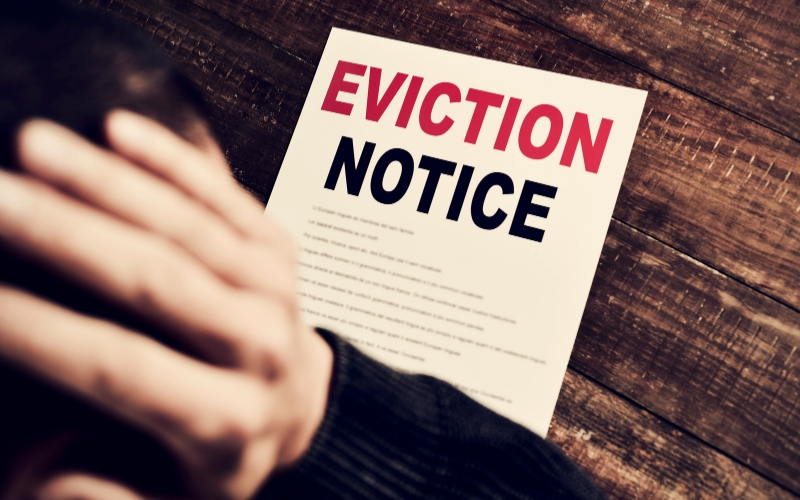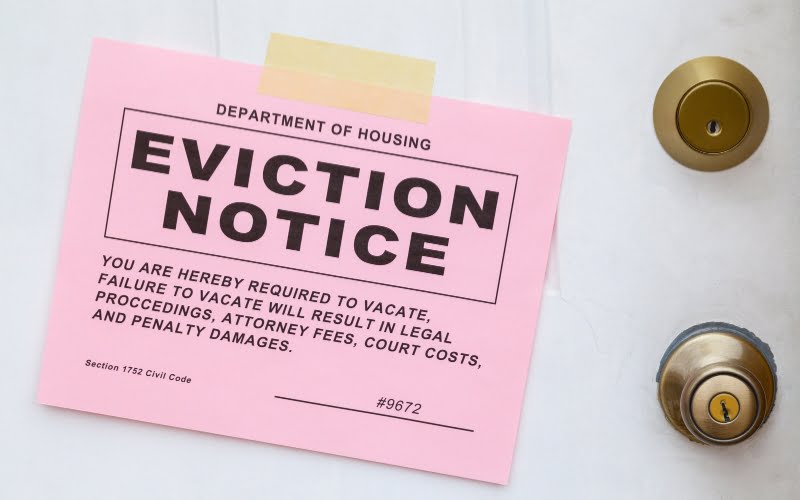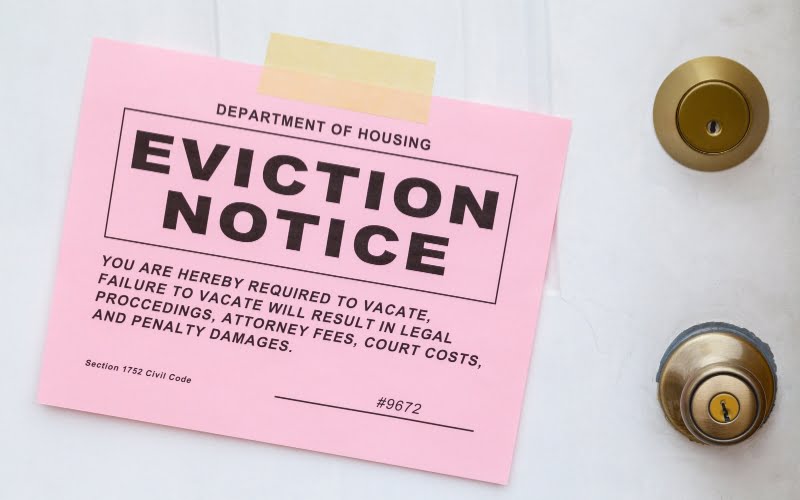Last Updated on May 30, 2024 by Kelvin Nielsen
GA Code Title 44 Chapter 7 gives landlords the right to evict a tenant under certain legitimate reasons. Including, failing to pay rent, violating a lease term, or even for refusing to leave after the lease has expired.
For successful eviction, though, you must follow the proper eviction process. You must not use unlawful eviction methods like throwing out the tenant’s belongings, shutting down their utilities, or locking them out.
Furthermore, the eviction must not be a retaliatory tactic against the tenant or be based on a federal or state-protected class.
So, how exactly should you file an eviction notice in Georgia? Well, here’s everything you need to know in this regard.
How to File an Eviction Notice in Georgia
First off, you can only file an eviction notice for legitimate reasons. According to Georgia law, the following are the ONLY ‘just causes’ for eviction.
- Failure by the tenant to pay rent.
- Staying after the lease has expired.
- Violating a term of the lease agreement.
- Committing an illegal activity.
Next, you must serve the tenant with an appropriate eviction notice to terminate their lease agreement. The specific notice to use will be dependent upon the reason for the eviction.
Eviction Notice for Nonpayment of Rent
To evict a tenant who is late on paying rent or their utility bills, you must serve them a 3 Day Notice to Quit. This will give the tenant only three business days to either pay the balance due or move out.
The following is a free template you can use when filing an eviction notice for nonpayment of rent.
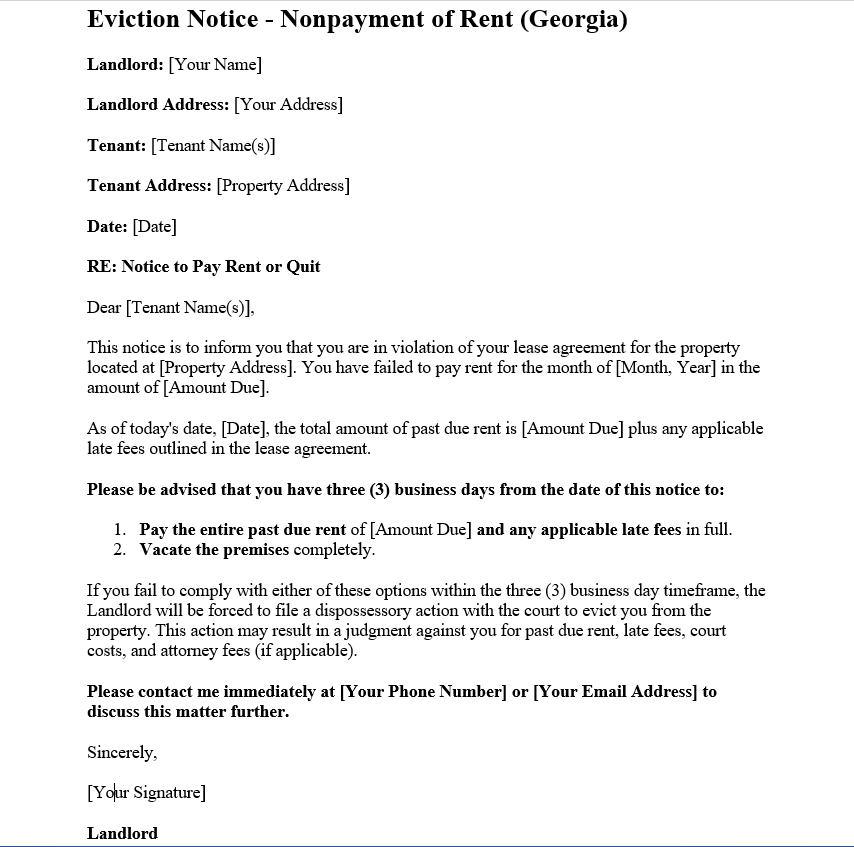
Eviction Notice for Tenants Without a Lease.
You may also be able to evict a tenant without a lease by serving them a 60-Day Notice to Vacate. This notice will give the tenant up to 60 business days to move out. This notice also applies to tenants on a month-to-month lease.
If the tenant doesn’t move out by the end of the notice period, you can move forward and file an eviction lawsuit. Here is a template you can use.
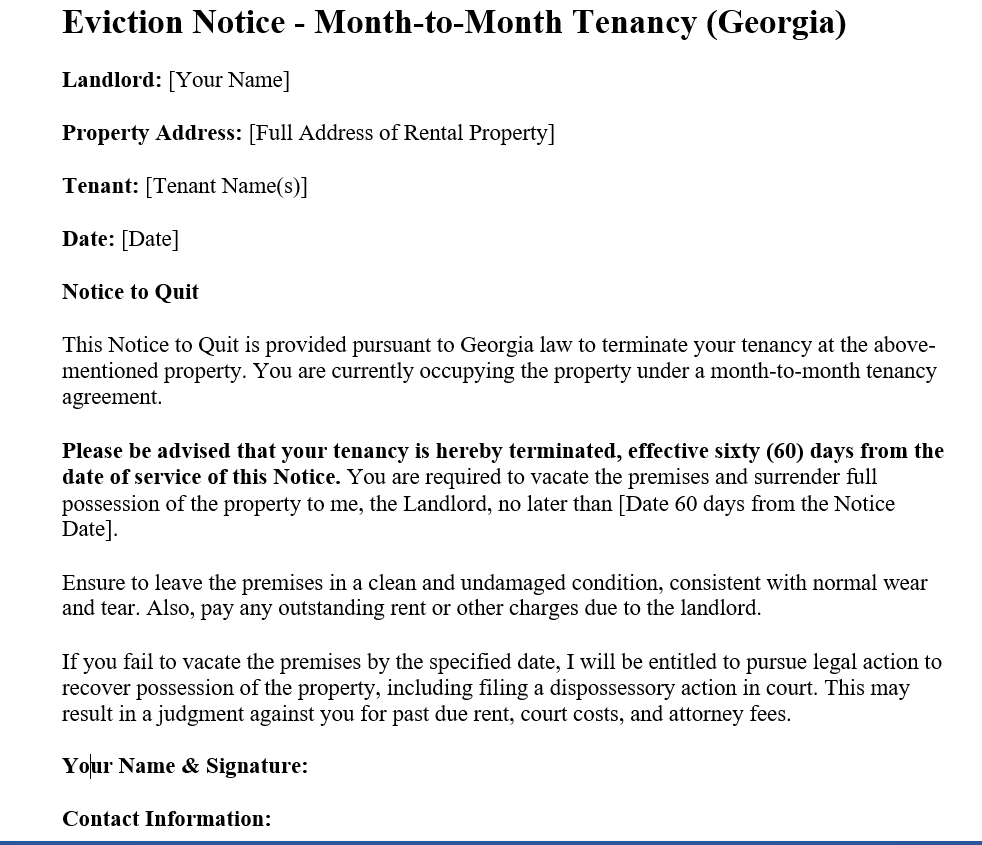
Eviction Notice for Lease Violation
Another legitimate reason for tenant eviction in Georgia is violation of the lease. Examples of common lease violations include keeping unauthorized pets, making illegal property alterations, and causing excessive property damage.
If the tenant does any of these things, you may be able to terminate their lease by serving them an eviction notice.
Unlike some other states, Georgia law doesn’t require you to provide the tenant with any notice before terminating the tenancy. Technically speaking, you can require the tenant to move out on the same day the violation has occurred. And if they don’t, you can move to court on the same day and file an eviction lawsuit.
That said, it’s common practice for Georgia landlords to serve their tenants with a 3 Day Notice to fix the issue or move out.
Eviction Notice for Illegal Activity
To evict tenants who have committed an illegal activity, you can serve them an immediate Notice to Vacate. Just like with the eviction notice for lease violations, you don’t have to provide the tenant with any advance notice.
On the same day you serve the notice, you can move to court and file an eviction lawsuit.
How to Serve a Tenant with an Eviction Notice in Georgia
When serving an eviction notice to a tenant in Georgia, you must do it in a specific manner. You have three options. You can use certified mail, pay the sheriff to deliver it on your behalf, or deliver it yourself with signed acknowledgment.
But whichever method you choose, make sure to have proof of delivery.
Frequently Asked Questions (FAQs): How to File an Eviction Notice in Georgia
Q: How do I start an eviction process in Georgia?
A: To start an eviction process in Georgia, you must first terminate the tenancy by serving the tenant with an appropriate eviction notice. As previously mentioned, the type of notice to serve will depend on the reason for eviction.
For instance, to evict a tenant for failing to pay rent on time, you must serve the tenant with a 3 Day Notice to Quit. This will give the tenant only 3 days to clear the outstanding rent balance or utility bills.
Q: How much is it to file an eviction notice in Georgia?
A: There are no costs to filing an eviction notice. Unless, of course, you decide to hire an expert lawyer to handle the eviction process on your behalf.
You can find a template online or draft one yourself. Just make sure to include all the important details. Such as, the reason for the eviction, any notice period, and what exactly what actions you need the tenant to take.
Q: Can a tenant fight an eviction in Georgia?
A: Absolutely, a tenant can fight their eviction under Georgia laws. Even after a successful judgment in the landlord’s favor, a tenant can still file an appeal 7 days after the court’s decision.
Q: What happens if a tenant misses court for eviction in Georgia?
A: If the tenant misses the hearing, then the court will render a default judgment in your favor.
Q: Can you evict a tenant for no reason in Georgia?
A: Nope! Landlords must have a legitimate reason for tenant eviction. Such as, failing to pay rent on time, causing negligent property damage, or for violating a term of the lease.
You cannot evict a tenant just because you no longer want them on the property. After all, a lease is a legally binding agreement that contractually binds both parties for a certain period.
Conclusion
There you have it – everything you need to know when it comes to filing an eviction notice in Georgia. If you have any more questions or need expert help, please don’t hesitate to get in touch with us.
Disclosure: The content herein isn’t a substitute for advice from a professional attorney. It’s only meant to serve educational purposes. If you have a specific question, kindly seek expert attorney services.
Sources: GA Code Title 44 Chapter 7, Free Eviction Notice Templates

I am a real estate attorney with over 11 years of experience in tenant eviction cases. My mission here at LTRC is to help answer your commonly asked questions on everything regarding real estate laws, especially on eviction matters.
I’m a member of the following professional organizations: Attorneys’ Real Estate Councils of Florida (ARECs), Florida Bar Real Property, Probate & Trust Law Section, American College of Real Estate Lawyers (ACREL), and the Florida Association of Community Managers (FACM).

